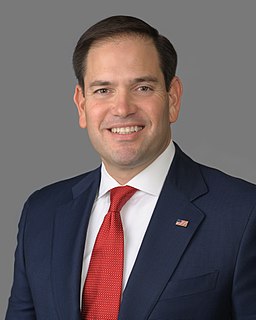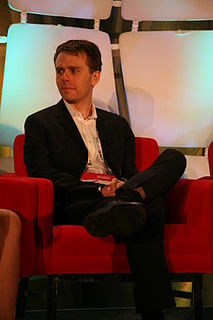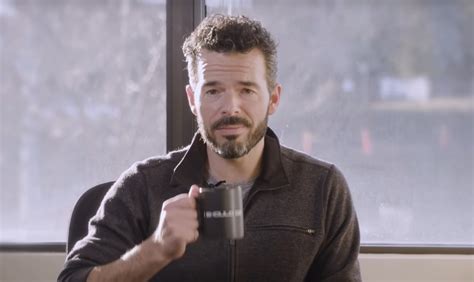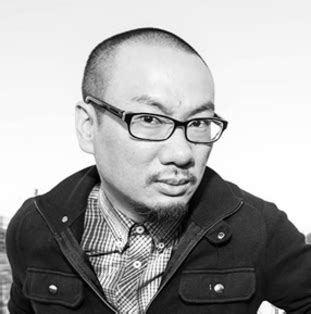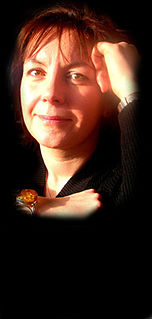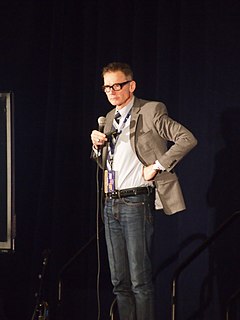A Quote by Todd Wilcox
I'm not afraid to take questions about where I come from, where I've traveled, or how I've conducted business, because being honest about who I am is worth it.
Related Quotes
Being a geek is all about being honest about what you enjoy and not being afraid to demonstrate that affection. It means never having to play it cool about how much you like something. It’s basically a license to proudly emote on a somewhat childish level rather than behave like a supposed adult. Being a geek is extremely liberating.
My advice to young people in the wrestling business would be to repeat such questions to yourself as: "How am I standing out? How am I getting recognized? How am I getting over?" And if you don't have definitive answers for doing those things, you are doing it wrong. It is, essentially, on them. There is no right way to do it, and that's one of the great things about this business because you can be creative. People who say they have it figured out are wrong.
When I was a kid I think the thing I remembered most about The Exorcist was Linda Blair being possessed by the devil, and how scary that was. It had a lot of parallels for me because the movie was challenging different ideas about faith and it was looking at religion in a darker way. Growing up I was afraid of being possessed by the devil, as an adult I'm afraid of being possessed by the world, by ignorance, and not holding on to my beliefs and what I feel strongly about.
Something worth doing might take a while, so really flesh out the potential of the business and be honest about whether it's worth doing. If it's not a $100 million company in five years, maybe it'll take 10 or 15 years. If you're doing something that has a universal, timeless need, then you need to think of the company in a timeless way.
if I could tell my very-younger self something, I would tell him to let loose more often. I think it all roots in sexuality, but because of that, I became so worried about everything — worried about what people thought. I was afraid to be creative and charismatic and eccentric. Just to do things to do things, like dancing. I was afraid of looking too flamboyant or something. I would tell myself to stop being so stressed about what other people are thinking. Stop being so afraid that something may not come off the right way.
I don't want to stand with somebody's praise. Whereas now when people come up to me, they say, "I love the bookstore" and "Kids! Come here, come here! This is the woman who owns the bookstore." That's incredible. I can say to that, "Thank you for shopping local. Thank you for coming in. What are you reading? Let's talk about books." It's about something I'm doing as opposed to somehow something I am. I feel comfortable and positive in that role. Because it's about reading. It's about books. It's about learning. It's about business and tax base.
The great philosophers of the 17th and 18th centuries did not think that epistemological questions floated free of questions about how the mind works. Those philosophers took a stand on all sorts of questions which nowadays we would classify as questions of psychology, and their views about psychological questions shaped their views about epistemology, as well they should have.
Sometimes a poem starts because I feel the urge to write about something from which I carry a great deal of shame, and I try to sketch out in writing how I am complicit in whatever dynamic it is I am illuminating. And sometimes it comes later, when I step back and challenge myself - am I being honest here?
Do I fear death? No, I am not afraid of being dead because there's nothing to be afraid of, I won't know it. I fear dying, of dying I feel a sense of waste about it and I fear a sordid death, where I am incapacitated or imbecilic at the end which isn't something to be afraid of, it's something to be terrified of.
So many writers come to class with one question dominant in their mind, 'How do I make a living from this?' It's a fair enough question and one I always try to answer well- but it saddens me that it so often overshadows the more relevant questions of 'why am I writing' and 'what am I saying' and 'how do I keep it honest.
It wasn't that I hated being asked a bunch of questions. I had nothing against questions. I just didn't like listening to them, because some questions take forever to make sense. Sometimes waiting for a question to finish is like watching someone draw an elephant starting with the tail first. As soon as you see the tail your mind wanders all over the place and you think of a million other animals that also have tails until you don't care about the elephant because it's only one thing when you've been thinking about a million others.
